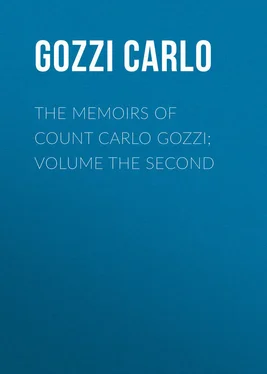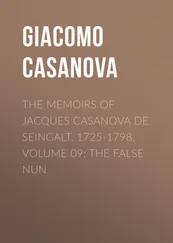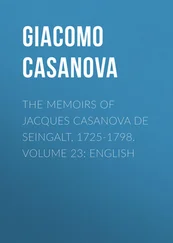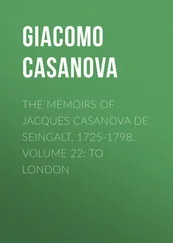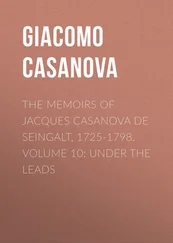Carlo Gozzi - The Memoirs of Count Carlo Gozzi; Volume the Second
Здесь есть возможность читать онлайн «Carlo Gozzi - The Memoirs of Count Carlo Gozzi; Volume the Second» — ознакомительный отрывок электронной книги совершенно бесплатно, а после прочтения отрывка купить полную версию. В некоторых случаях можно слушать аудио, скачать через торрент в формате fb2 и присутствует краткое содержание. Жанр: foreign_antique, foreign_prose, на английском языке. Описание произведения, (предисловие) а так же отзывы посетителей доступны на портале библиотеки ЛибКат.
- Название:The Memoirs of Count Carlo Gozzi; Volume the Second
- Автор:
- Жанр:
- Год:неизвестен
- ISBN:нет данных
- Рейтинг книги:4 / 5. Голосов: 1
-
Избранное:Добавить в избранное
- Отзывы:
-
Ваша оценка:
- 80
- 1
- 2
- 3
- 4
- 5
The Memoirs of Count Carlo Gozzi; Volume the Second: краткое содержание, описание и аннотация
Предлагаем к чтению аннотацию, описание, краткое содержание или предисловие (зависит от того, что написал сам автор книги «The Memoirs of Count Carlo Gozzi; Volume the Second»). Если вы не нашли необходимую информацию о книге — напишите в комментариях, мы постараемся отыскать её.
The Memoirs of Count Carlo Gozzi; Volume the Second — читать онлайн ознакомительный отрывок
Ниже представлен текст книги, разбитый по страницам. Система сохранения места последней прочитанной страницы, позволяет с удобством читать онлайн бесплатно книгу «The Memoirs of Count Carlo Gozzi; Volume the Second», без необходимости каждый раз заново искать на чём Вы остановились. Поставьте закладку, и сможете в любой момент перейти на страницу, на которой закончили чтение.
Интервал:
Закладка:
The net result of my observations upon women is this. The love which most of them pretend for men, springs mainly from their vanity or interest. They wish to be surrounded by admirers. They are ambitious to captivate the hearts and heads of people of importance, in order to reign as petty queens, to take the lead, to exercise power, to levy contributions. Or else they ensnare slaves devoted to them, free-handed managers of theatres, men who will give them the means at balls, at petits soupers , at country-houses, at great entertainments, to eclipse their rivals, to acquire new lovers, and to betray their faithful servant, their credulous accomplice in this game of fashion. Again, they are sometimes spreading nets to catch a complaisant husband, who will support them in their intrigues.
I was not born to pay court. My position in the world was not so eminent as to secure a woman's triumph by my influence. I was neither wealthy enough nor extravagant enough to satisfy a woman's whims in those ridiculous displays which make her the just object of disdainful satire. I had no inclination to ruin myself either in my fortune or in my health. I had conceived a sublime and romantic ideal of the possibilities of love. Matrimony was wholly alien to my views of liberty. The consequence was that, after these three earliest experiences, I regarded the sex with eyes of a philosopher.
I enjoyed the acquaintance of many women in private life, and of many actresses, remarkable for charm and beauty. Holding the principles I have described, I found them well contented with my manners of behaviour. They showed themselves capable of honourable, grateful, and constant friendship through a long course of years. In truth, it is in the main to men – to men who flatter and caress the innate foibles of women, their vanity, their tenderness, their levity, that we must ascribe the frequency of female frailties.
In conclusion, I will lift my voice to affirm this truth about myself. Without denying that I have yielded, now and then, but rarely, to some trivial weakness of our human nature, I protest that I have never corrupted a woman's thoughts with sophisms. I have never sapped the principles of a sound education. I have never exposed the duties and obligations of their sex to ridicule, by clothing license with the name of liberty. I have never stigmatised the bonds of religion, the conjugal tie, modesty, chastity, decent self-respect, with the title of prejudice – reversing the real meaning of that word, as is the wont of self-styled philosophers, who are a very source of infection to the age we live in.
Here, then, I leave with you the candid and public confession of my loves. [8] Gozzi had a distinct object in writing these chapters on his love-affairs. Gratarol's accusation of his having been a hypocrite and covert libertine lay before him. He wished to make a clean breast of his frailties. To suppress this portion of his apologia pro vitâ suâ would have been to do him grave injustice. The Memorie must always be read as an answer to Gratarol's Narrazione . See Introduction, Part i.
I have related the circumstances of my birth, my education, my travels, my friendships, my engrossing occupations, my literary quarrels, my amorous adventures. It is for you to take them as you find them. I have written them down at the dictation of mere truth. They are useless , I know, and I only publish them in obedience to the virtue of humility .
XXXVI
I wrote the useless memoirs of my life in 1780, down to the age I had attained in that year; but now that I still find myself alive in 1797, the vice of scribbling being in my case incorrigible, I am wasting some more pages on useless memoirs subsequent to that date, and am giving these in their turn to the public from a motive of humility.
If I were to narrate all the whimsical absurdities and all the untoward accidents to which my luckless star exposed me, I should have a lengthy business on my hands. They were of almost daily occurrence. Those alone which I meekly endured through the behaviour of servants in my employ, would be enough to fill a volume, and the anecdotes would furnish matter for madness or laughter.
I will content myself with mentioning one singularity, which was annoying, dangerous, and absurd at the same time. Over and over again have I been mistaken by all sorts of people for some one not myself; and the drollest point is that, in spite of their obstinate persistence, I was not in the least like the persons they took me for. One day I met an old artisan at San Pavolo, who ran to meet me, bent down and kissed the hem of my garment with tears, thanking me with all his heart for having been the cause of liberating his son from prison through my influence. I told him firmly that he did not know me, and that he was mistaking me for some one else. He maintained with great warmth and assurance that he knew me, and that I was his kind master Paruta. I perceived that he took me for a Venetian patrician of that name, but I vainly strove to disabuse him. The good man, thinking perhaps that I denied the title of Paruta in order to escape his thanks, followed me a long way with a perfect storm of blessings, vowing to pray to God until his dying day for my happiness and for that of the whole Paruta family. I asked a friend who knew the nobleman in question if I resembled him. He replied that Paruta was lean, tall, very lightly built, with thin legs and a pale face, and that he had not the least similarity to me.
Everybody knows or did know Michele dall'Agata, the celebrated impresario of the opera; [9] There is a good deal said about this man in Casanova's Memoirs.
it is notorious that the fellow was a good span shorter than me, two palms broader, and wholly different in dress and personal appearance. Well, through a tedious course of years, as long as this man lived, it was my misfortune to be stopped upon the road almost every day, by singers and dancers of both sexes, by chapel-masters, tailors, painters, letter-carriers, &c., all of whom mistook me for Michele. I had to listen to interminable complaints, lengthy expressions of gratitude, inquiries after lodgings, grumblings about meagre decorations and scanty wardrobes. From the letter-carriers I had, over and over again, to refuse letters and parcels addressed to Michele dall'Agata, screaming, protesting, swearing that I was not Michele. All these persons, when they reluctantly at last took leave, turned back from time to time and stared at me, like men bereft of sense, showing their firm conviction that I was Michele, who had reasons for not wishing to appear Michele. One summer, on reaching Padua, I learned that Signora Maria Canziani, an excellent and well-conducted dancer, and my good friend, had lately been confined. I wished to pay her a visit, and inquired from a woman at her lodgings if I might be introduced into her room. She responded with these words addressed to her mistress: "Madam, Signor Michele dall'Agata is waiting outside, and would like to offer his respects to you." When I entered the apartment, poor Canziani burst into such peals of laughter at the woman's blunder that I thought she must have died. Having paid this visit, I chanced to meet the celebrated professor of astronomy, Toaldo, on the bridge of San Lorenzo. He knew me perfectly, and I knew him as well. I bowed; he looked me in the face, lifted his hat with gravity, and passed onwards, saying: "Addio Michele!" The continual persistence of this error almost brought me to imagine that I was Michele. If Michele had earned the ill-will of brutal and revengeful enemies, this mistaken identity would certainly have been for me no laughing matter.
Интервал:
Закладка:
Похожие книги на «The Memoirs of Count Carlo Gozzi; Volume the Second»
Представляем Вашему вниманию похожие книги на «The Memoirs of Count Carlo Gozzi; Volume the Second» списком для выбора. Мы отобрали схожую по названию и смыслу литературу в надежде предоставить читателям больше вариантов отыскать новые, интересные, ещё непрочитанные произведения.
Обсуждение, отзывы о книге «The Memoirs of Count Carlo Gozzi; Volume the Second» и просто собственные мнения читателей. Оставьте ваши комментарии, напишите, что Вы думаете о произведении, его смысле или главных героях. Укажите что конкретно понравилось, а что нет, и почему Вы так считаете.
